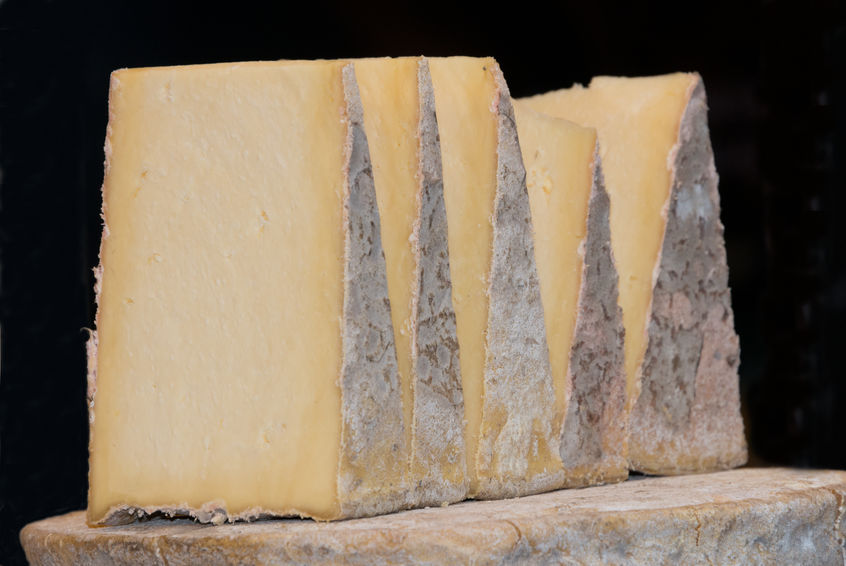
The only native cheese of Wales may get EU recognition as a protected food, as the government sends an application for PGI status.
“Traditional Welsh Caerphilly/Traditional Welsh Caerffili” is a “Caerphilly” styled hard cheese made in Wales from milk produced on Welsh farms, and it is historically the country's only cheese.
The milk tankers collecting the milk have on–board computers which record the farm details, milk volume, temperature and date of collection.
If milk is being sourced from the cheese makers own farm it is pumped from the refrigerators bulk tank direct into the cheese vat. Date, volume of milk and temperature of received milk is recorded.
The cheese can be made from pasteurised or raw cow’s milk and produced using either organic or nonorganic cow’s milk.
It is the only native cheese of Wales, and is produced as a flat round shaped cheese with a uniform consistent creamy white texture.
The outside of the cheese is smooth and intact and may have a slightly moulded coat, which historically was presented dusted with fine oatmeal or flour when sold.
Caerphilly is a fresh young cheese with a mild slightly “lemony” taste and a fresh lingering after taste. This taste will develop on maturity to have a more pronounced, fuller, but still mild flavour. It also has a fresh cheese aroma and a smooth close and flaky texture.
Protected food
The EU protected food name scheme covers regional and traditional foods whose authenticity and origin can be guaranteed.
To get a product protected under PGI, it must be produced, processed and prepared in one area and have distinct characteristics from this area.
Some UK protected foods include Stilton Blue cheese, Yorkshire Wensleydale cheese, Cornish clotted cream, Scottish wild salmon and Gloucestershire old spots pork.
However, traditional British produce protected by the EU's protected food name scheme could be at risk when the country leaves the EU.
Back in 2016, then-Prime Minister David Cameron warned that farmers would lose the protected status awarded by the EU for produce made in their traditional areas.
It has led the Welsh red meat industry to plea for the creation of a UK-equivalent scheme which recognises British produce.
